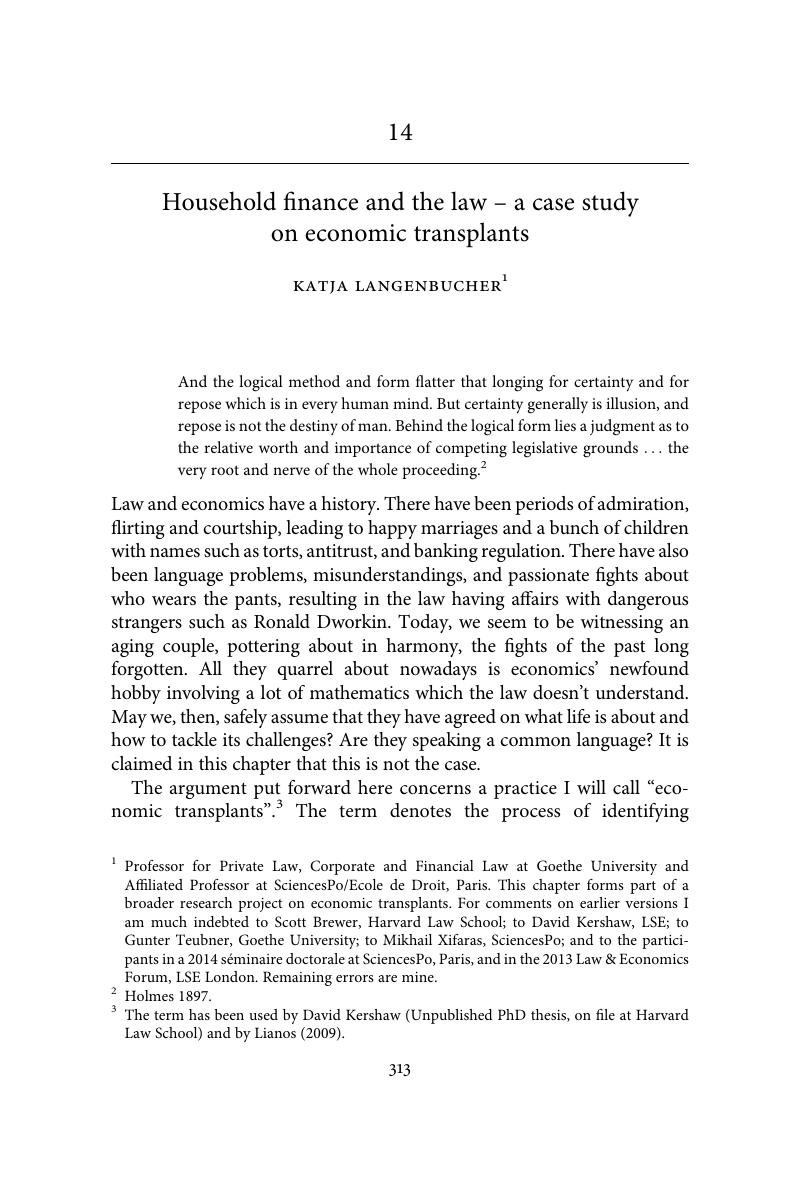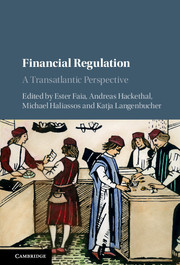Book contents
- Financial Regulation
- Financial Regulation
- Copyright page
- Contents
- Figures
- Tables
- Contributors
- Foreword: Financial regulation – the first macro-prudential tool
- Editors’ preface
- Book part
- Part I Micro- and macro-prudential regulation
- Part II Investor and borrower protection
- 9 Keeping households out of financial trouble
- 10 Financial market governance and consumer protection in the EU
- 11 Financial advice
- 12 U.S. financial regulation in the aftermath of the Global Financial Crisis
- 13 Risk aversion and financial crisis
- 14 Household finance and the law – a case study on economic transplants
- Index
- References
14 - Household finance and the law – a case study on economic transplants
from Part II - Investor and borrower protection
Published online by Cambridge University Press: 05 August 2015
- Financial Regulation
- Financial Regulation
- Copyright page
- Contents
- Figures
- Tables
- Contributors
- Foreword: Financial regulation – the first macro-prudential tool
- Editors’ preface
- Book part
- Part I Micro- and macro-prudential regulation
- Part II Investor and borrower protection
- 9 Keeping households out of financial trouble
- 10 Financial market governance and consumer protection in the EU
- 11 Financial advice
- 12 U.S. financial regulation in the aftermath of the Global Financial Crisis
- 13 Risk aversion and financial crisis
- 14 Household finance and the law – a case study on economic transplants
- Index
- References
Summary

- Type
- Chapter
- Information
- Financial RegulationA Transatlantic Perspective, pp. 313 - 335Publisher: Cambridge University PressPrint publication year: 2015
References
- 1
- Cited by



